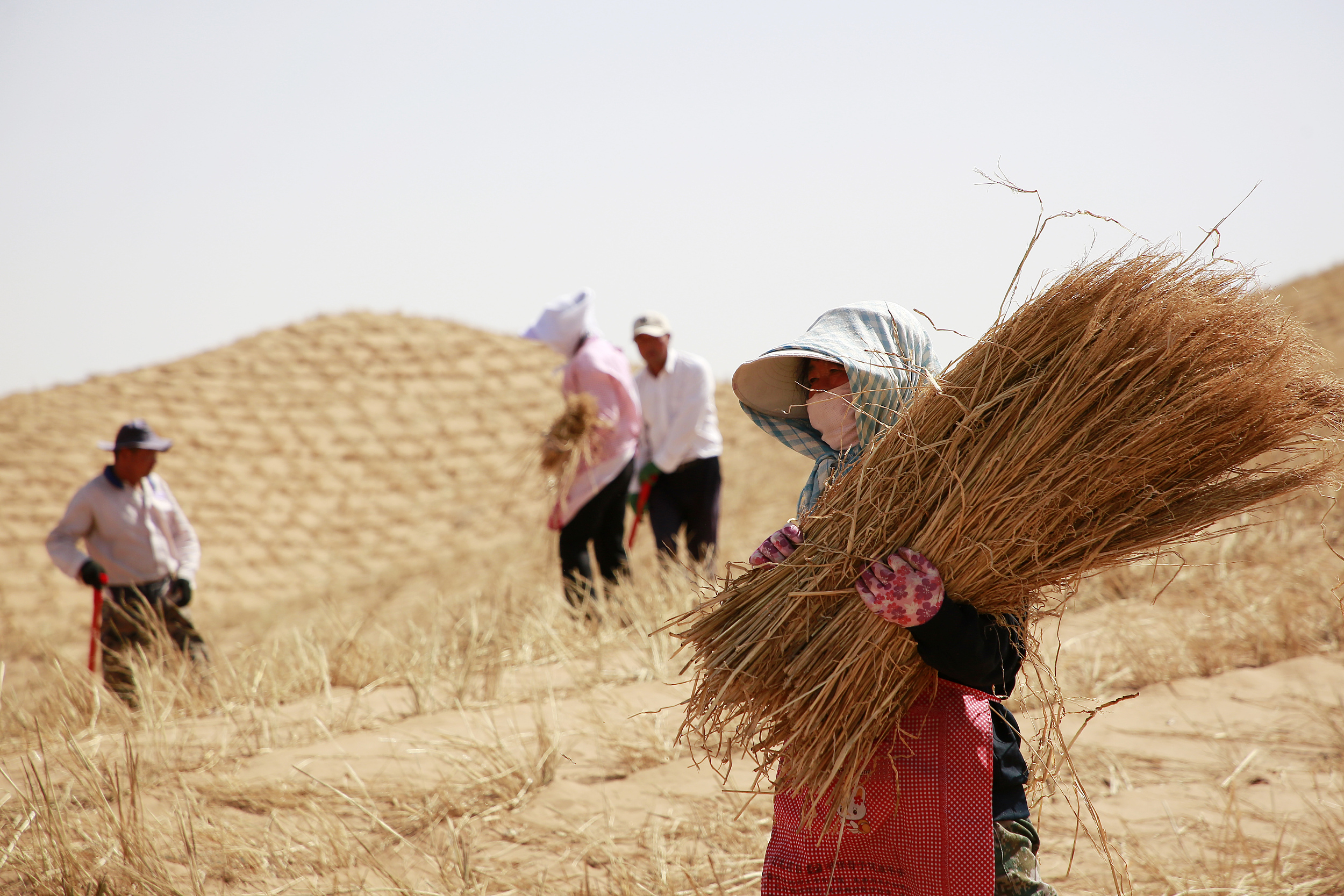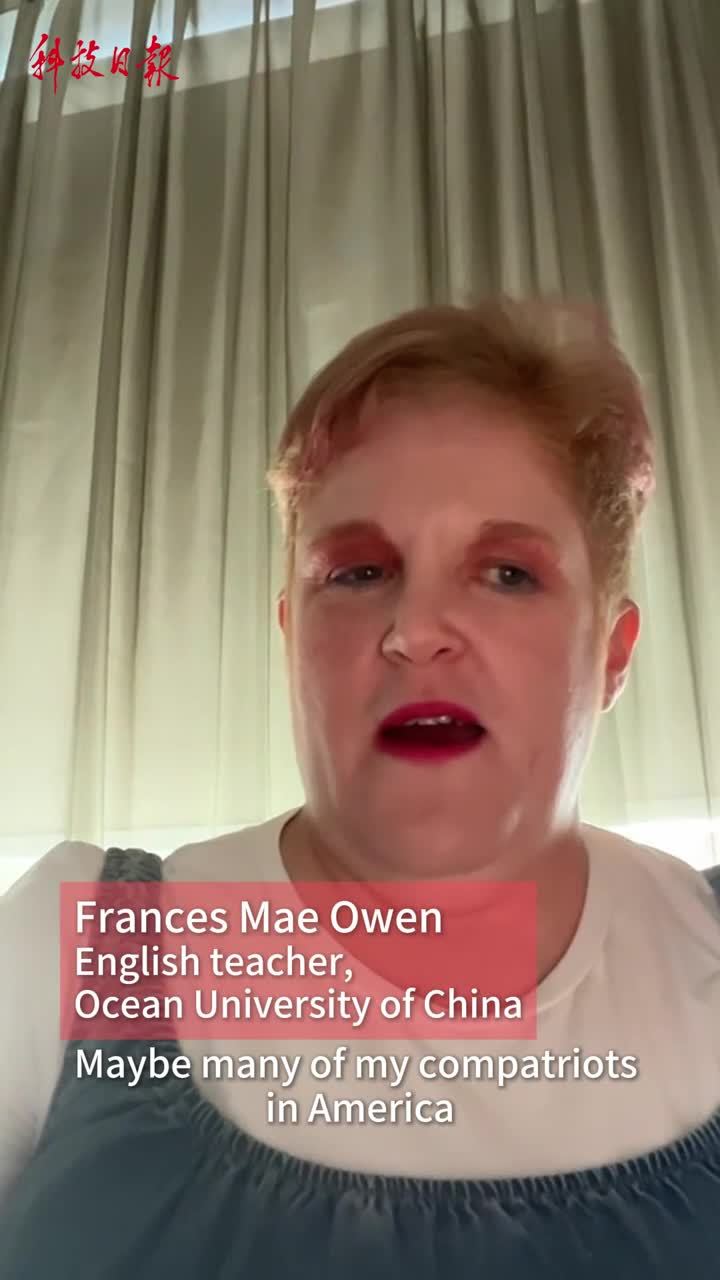United for Land: Our Legacy, Our Future

Workers make straw checkerboards in the Tengger Desert in Zhongwei, northwestern China's Ningxia Hui autonomous region, on May 9, 2024. (PHOTO: VCG)
By?TANG?Zhexiao
Themed "United for Land: Our Legacy, Our Future", this year's Desertification and Drought Day on June 17 focused on the future of land stewardship.
Every second, an area of healthy land equivalent to four football fields is degraded, according to the UN. Up to 40 percent of the world's land is degraded, affecting nearly half of humanity, said Ibrahim Thiaw, United Nations Convention to Combat Desertification (UNCCD) executive secretary.
After decades of efforts, China has embarked on a path of preventing and controlling desertification with Chinese characteristics and achieved the goal of zero land degradation growth by 2030 set by the UN ahead of schedule, winning praise from the global community.
Building a green 'Great Wall'
National drive plays an important role in curbing desertification, and China's greening achievements are inspiring.
Data from the National Forestry and Grassland Administration show that China's desertified land and sandy land areas have decreased by 5 million hectares and 4.33 million hectares respectively.
Launched in 1978 and scheduled to be completed in 2050, the Three-North Shelterbelt Forest Program (TSFP), built to protect northwest, north and northeast of China from desert encroachment, is the world's largest afforestation project.
Earlier in June, the Ministry of Finance announced a special fund worth 12 billion RMB from this year's central budget to provide financial support for the TSFP, the fully functional, unbreakable green "Great Wall" and ecological security barrier.
Chinese solutions for a global problem
Desertification is a global issue. The Chinese solutions for turning deserts into forests offer rich experience for other countries facing similar challenges.
The Ningxia Hui autonomous region in northwestern China, surrounded by three deserts, suffered desertification for more than six decades. Based on the site conditions, the local government is using straw checkerboards to fix the sand and prevent it from moving and advancing. Planting is done in spring and autumn, supplemented by spot sowing, container seeding, and broadcast seeding in the rainy season. This has effectively stopped the sand dunes from shifting and helped the vegetation cover.
Now, people from different parts of the world are flocking to Ningxia to learn about this sand control approach. "We have received good information," said Bashir Daoud, founding CEO of Jordan National Tourism Council. He said what he learned can be used in his own country as Jordan too has a climate similar to Ningxia's.
Last year, China and Arab nations signed an agreement to establish an international center to fight desertification. The initiatives include planting 10 billion trees, setting up a shrub nursery and building eco-solar desert control engineering projects in Saudi cities, according to Anadolu Agency reports.
China has established green belts around many cities and become a source of inspiration for African countries that are battling land degradation, according to Magdy Allam, advisor to the Global Environment Facility.
Allam said China's successful management of climate risks, such as drought and heatwaves, is a real contribution to global ecological conservation.







